Emily, 8, Blake, 7, and Kate Baker, 5, all struggle with distance learning. Although their mother, Kourtney Mills, tries to find creative new ways to keep them engaged and excited about school, she worries it’s not enough.
“Sometimes I feel like my kids have lost the love and the joy for learning,” Mills said.
Distance learning has magnified the educational crisis, Mills said. Citing Montgomery County public schools’ grim failure rates for the first term, Mills said she’s worried Capitol Hill’s Black students will fall farther and farther behind.
“The pandemic has uncovered and exacerbated existing challenges and traumas for families living with few resources,” Parent-Teacher Association President Elsa Falkenburger told the Wash. “The silver lining is that people are starting to see the challenges that families live with.”
Since the onset of the coronavirus pandemic in March, low-income Black students have struggled to meet the demands of distance learning. In Capitol Hill and Southwest Washington, community leaders are teaming up to help them.
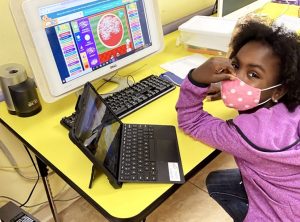
It takes a village…
When Brotha’s Huddle reached out to Capitol Hill’s Tyler Elementary School with plans to support younger students struggling with distance learning, Brother Abdul Kareem Muhammad told the Wash that the school’s principal was very receptive.
“We voiced our concern, and [Principal Jasmine Brann] voiced her concern,” Muhammad, co-founder and CEO of the community-based organization that supports children at Potomac Gardens and Hopkins Apartments, said. “The concern is one in the same.”
Brotha’s Huddle and Tyler Elementary School will work in tandem to close the educational gap exacerbated by the pandemic.
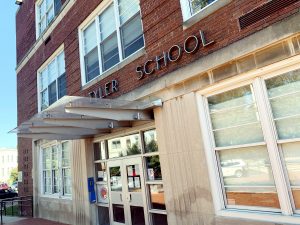
“We wanna make sure that our children, and particularly our residents of Potomac and Hopkins, aren’t getting left behind, especially on DCHA property,” Muhammad said.
“We see that there’s a gap and this gap is widening. We wanna make sure that we can assist Tyler to close that gap.”
Steve Park, executive director of Little Lights, a faith-based nonprofit organization, said the pandemic has given impetus for community organizations to band together to fight off inequity.
“I think when you go through these kinds of major crises, you realize just how much you need to try to help each other,” Park said.
Potomac Gardens Resident Council President Aquarius Vann-Ghasri said the challenge has been providing technological resources like laptops, reliable internet and space. Vann-Ghasri noted that on one occasion, a Potomac Gardens parent used their rent money to buy their child a laptop.
“For underserved youth, remote learning just doesn’t compare to in-person learning,” Park said. “It was already a challenge to do in-person learning, but remote learning is definitely not adequate.”
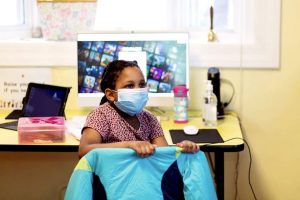
To solve this problem, Little Lights created a Learning Hub where students have access to computers and reliable internet, and receive academic support. The learning hub, which serves approximately 120 students in Potomac Gardens, Hopkins Apartments and Benning Terrace in Southeast Washington, runs five days a week from 11 a.m. to 3 p.m.
Mills, who’s noticed students struggling to focus in class, said the program has been helpful.
“The people that are at Little Lights—the workers—they are there focused solely on helping the kids and getting their assignments in,” Mills said.
Little Lights has raised $30,000 to provide free tablets and laptops to students. Similarly, Brotha’s Huddle partnered with Ward 6 Mutual Aid to distribute laptops to students in need.
…to raise a child
In Southwest Washington, a community-based organization partnered with D.C. Housing Authority to help public housing students struggling with distance learning.
Executive Director and Co-founder of GOODProjects Darius Baxter said that when he found out D.C. public schools would remain virtual for the 2020-21 academic year, his organization committed its time, resources and effort to ensure that children at Greenleaf Gardens would not be left behind.
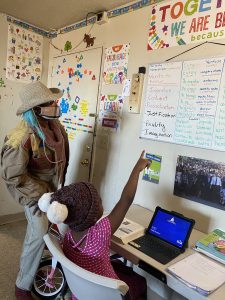
“In Southwest Washington, D.C., you have hundreds of families that at times have found themselves left out,” Baxter said. “The Learning Hub, when it opened up, was our effort to ensure that the same level of care that a child growing up in upper Northwest is receiving, is being provided to students growing up in Southwest Washington, D.C.”
Baxter said the GOODLearning Hub serves 22 students in a supportive environment where they can learn and be successful.
Each student receives a laptop, hot spot and individualized attention from experienced educators every day.
“Our commitment and our love and our resources are dedicated to the Southwest housing community,” Baxter said.
Brotha’s Huddle, Little Lights and the GOODLearning Hub are currently welcoming donations.
Reaching across
In the same way that Little Lights supports her children, Mills plans on supporting others through the creation of the Great Expectations Kids Club. The 8-week program, run out of Potomac Gardens, focuses on dreams and goals, self-confidence, responsibility, respect, bullying and choices, education, homework and finance.
The program starts this Thursday and already has eight students.
There’s excellence in Potomac Gardens, it just needs to be supported, Mills said.

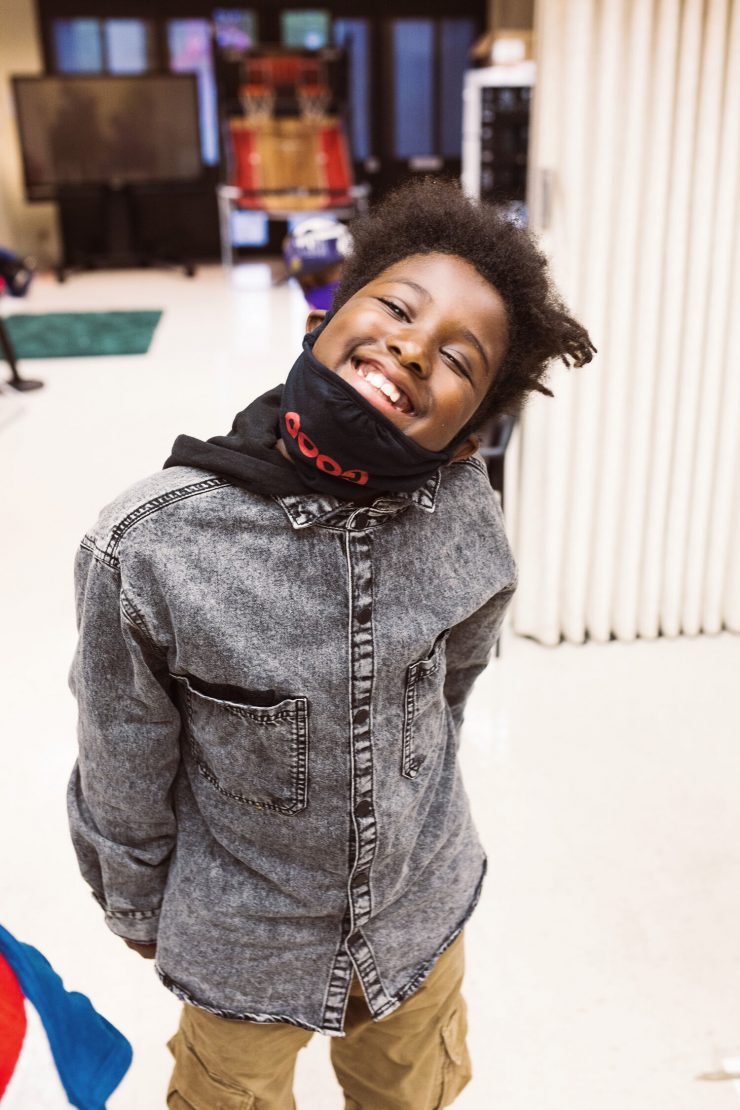
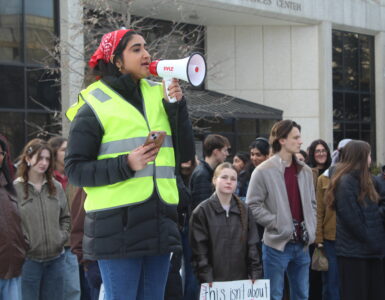












Add comment